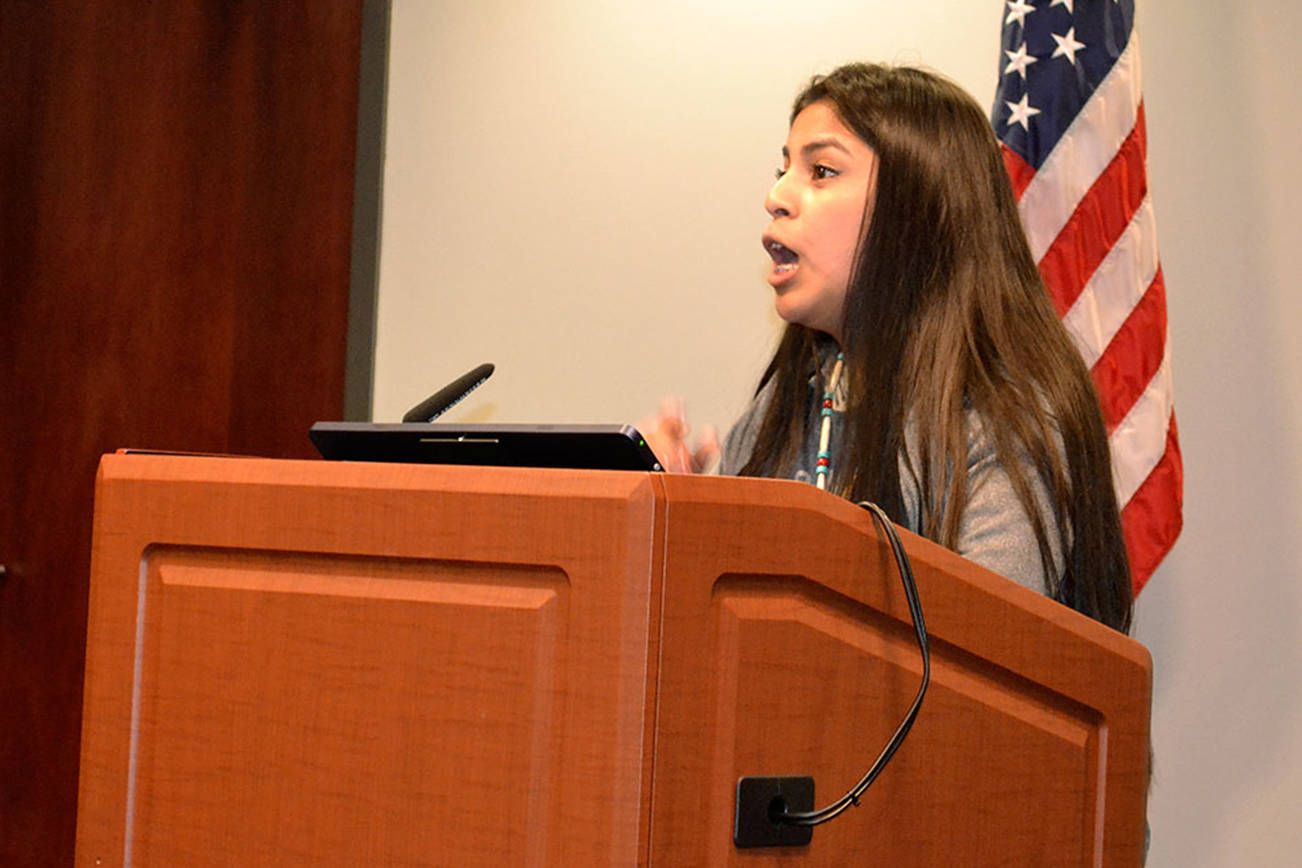They live in Auburn, pay taxes, buy in its stores, eat in its restaurants; their children attend schools here; they don’t expect anything for free but work hard for everything they have.
“We are not strangers, we are your neighbors and friends, “advocates for the undocumented informed the City Council Monday evening at Auburn City Hall.
And what they didn’t want was the City of Auburn helping the feds round up their undocumented friends or loved ones for deportation.
The best way to get there, they said to a person, was for the City to pass an ordinance spinning their hopes into a new law, making Auburn a sanctuary city in all but name.
At the same time, nuts to its alternative Monday – an 8-year-old resolution that would redeclare an existing city policy.
“I think it’s so easy to say that ‘yes, yes, yes, (Immigration, Customs and Enforcement or ICE) will come.’ We understand that, I understand that,” said Erandy Flores, who came to the United States with her family when she was 3 years old. “But it’s the fact that there are so many little things you would be helping with by passing this ordinance. I understand that, why can’t you understand that?
“You guys are politicians. I am a 16-year-old girl. … A resolution is full of beautiful intentions, but I need something with a little more power to it,” Flores added.
But with the council voting after two hours of testimony by 4-3 to pass the resolution, Flores and most of those who had packed the council chamber and spilled into the hall left disappointed.
Councilmembers Rich Wagner, Bob Baggett, Claude Da Corsi and John Holman voted for the resolution, while Yolanda Trout-Manuel, Deputy Mayor Largo Wales, and Bill Peloza supported the ordinance.
In a key moment before the vote, City Attorney Dan Heid said that the resolution makes it a matter of personnel policy should an employee fall afoul of the rules, not an issue of law. By adopting the ordinance, one effect would be to put city employees at risk of landing in court.
Heid said that his office reworked the resolution after last week’s study session to such an extent that it was practically indistinguishable from the ordinance. Neither contains language specifically prohibiting Auburn Police officers from cooperating with the federal government.
Police Chief Bob Lee said his officers never ask for one’s immigration status.
Auburn officials have been reluctant to defy the federal government in this matter, as the Trump Administration has threatened to withhold millions of dollars in vital federal funding on which the city depends.
‘More teeth’
At a council study session last week, Wagner supported the ordinance, because, he said, it had “more teeth,” than the resolution. But given the changes wrought on the resolution in the last week, Wagner changed his mind.
None of which carried any water for advocates.
“Remember the childhood that you had when you grew up, by your parents, and you weren’t separated. The childhood of our kids is different,” Auburn’s Maria Cruz said before the vote.
“City Council, please don’t make it to where my daughter will be reading an email on my phone two weeks after I pass, telling me that my work, that our work, that our voices were finally acknowledged,” said Charlena Razo Moutine.
Then, finding a parallel in the forced internment of Japanese American citizens living on the West Coast at the beginning of the United States entry into WWII, Razo Moutine added: “We failed our Japanese families, we failed our Japanese neighbors. Don’t fail one more immigrant family. Never again starts today.”
There were, however, dissenting voices among the crowd.
“I think we are setting ourselves up for real problems,” Auburn’s Dan Peters said before the vote. “It (sanctuary city status) takes away federal funds that helped build this city hall. I think what’s going to happen is the feds are going to come in and do their job, and that’s what they’re doing. It would put extra strain on public services, police, fire, hospitals, and schools, that we all passed a levy for that raises our property taxes. And the thing is, it’s going to pass it on to the taxpayers. Well, we’re the taxpayers.
“You’re setting yourself up for protests in our city also. The situation is, this is just the start. Look at Seattle,” Peters said of a city that has declared itself a sanctuary city. “We see the picture. If Seattle is so good, move to Seattle. … There’s going to be more people in our area, undocumented, and the thing is, we’ve gotta have control in our city.”


